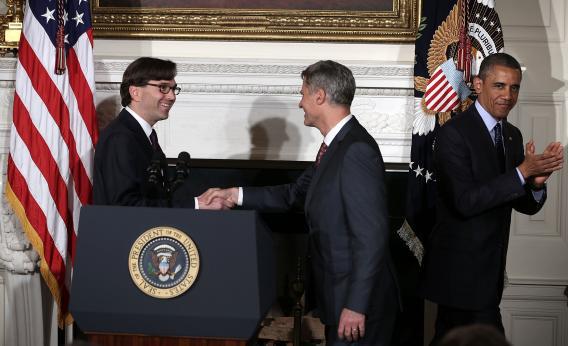My old boss Robert Kuttner has some very real policy disagreements with Council of Economic Advisors chairman-designate Jason Furman, but Kuttner’s effort to lump these disagreements together under the banner of “austerity” is wrongheaded and confusing.
In fact the general trend over the past several years among people on the left to start using “austerity” as a meaningless signifier for “policies I don’t like” has had an unfortunate negative impact on the quality of discourse. When state governments cut back social services in the face of falling tax revenue and rising employee health care and pension costs, that is a kind of austerity. But the available alternative of raising taxes is also a form of austerity. By the same token, Obama raising taxes on the rich in early 2013 is a form of austerity. Kuttner’s most specific beef with Furman is that Furman is a long-time advocate of cutting Social Security benefits by changing the cost of living index.
This is a great topic to debate, but it’s worth noting that in the present context it’s Kuttner who has the more “austere” view. Furman wants to put these Social Security cuts, that by their nature are heavily backloaded, into a package that would repeal the sequester—which by its nature is very frontloaded. Make the kind of deal that the White House has put on the table, and you’d give the economy a substantial short-term boost. Indeed, that’s one of the main reasons the White House wants that kind of deal. Kuttner and others are glad the GOP has shot the White House offer down because they don’t think a long-term reduction in Social Security spending is a price worth paying for a less austere budget at a time of mass unemployment. I basically think Kuttner is right about that, but this very much isn’t a debate about austerity—it’s a debate about Social Security.
